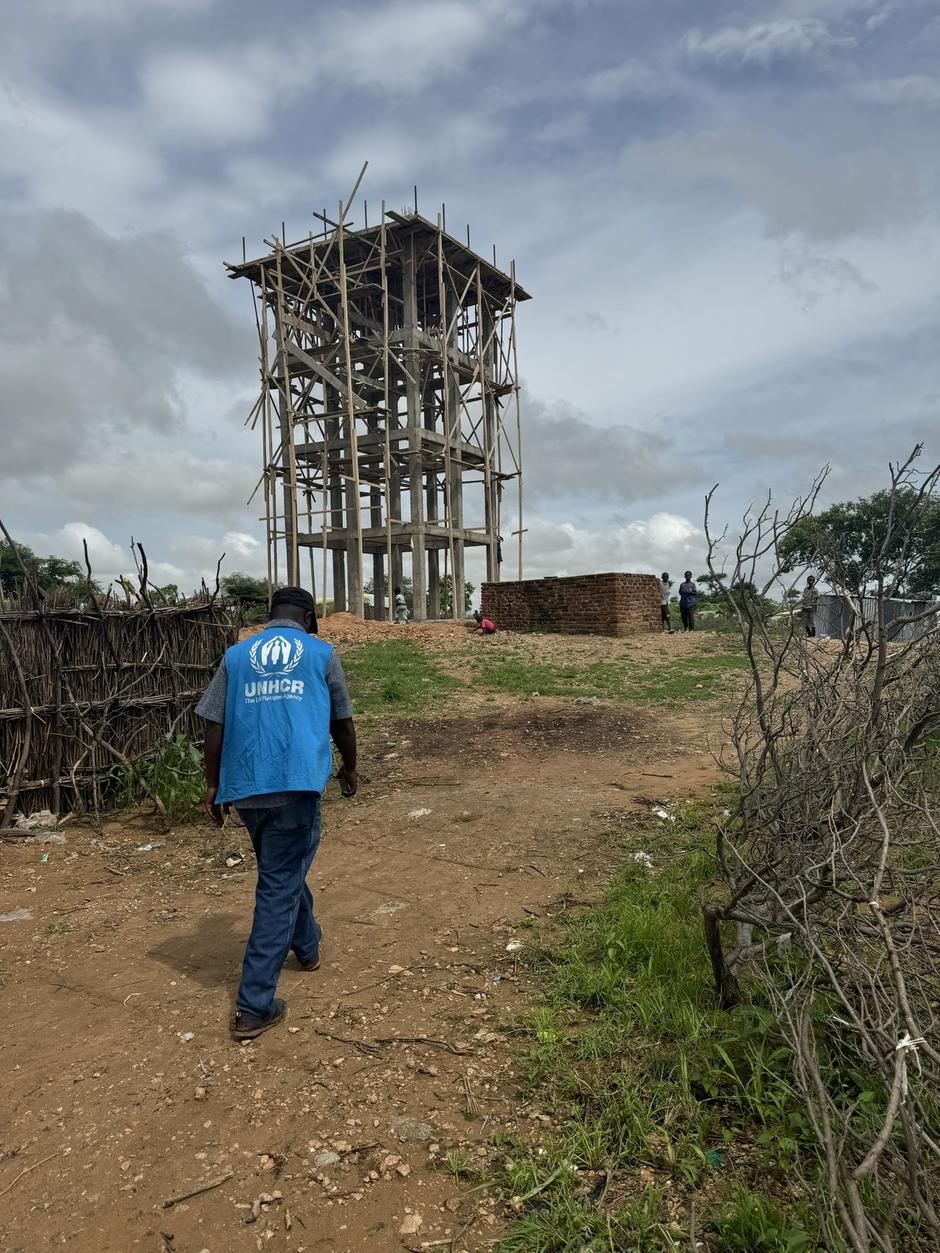David Maisonneuve, Distribution Networks Manager for the Veolia Group, inaugurated the Veolia Foundation's mobilization in Eastern Chad, alongside the High Commissioner for Refugees, to improve access to drinking water in UN-run camps. He spent two weeks in the Ouaddaï region, near Farchana, where a dozen camps house several hundred thousand people.
You set out with a fairly broad roadmap in terms of perimeter. There are several camps and a global infrastructure issue. How did you feel about the mission before you left?
David Maisonneuve: What I quickly grasped was the heterogeneity of the situations. The camps, some of which date back 20 years and have gradually been absorbed by neighboring villages, are at very different levels of maturity when it comes to access to water. The NGOs mandated by the UNHCR to carry out the work and manage the infrastructures have, more often than not, worked in extreme urgency, without being able to stand back and take stock. The result is a patchwork of boreholes, pumps, reservoirs and distribution ramps to cover some of the vital needs.
Against this backdrop, how do you go about auditing the camps?
DM: I visit the main camps (7 camps representing 95% of the total population) to get a better idea of the needs, identify the actions that have been carried out, see what's working and what's not, and above all to listen. Because the different people involved in the issue of access to water have their own priorities, which I need to understand in order to make appropriate recommendations. There's a global strategy for organizing the lives of families in the various camps, and we have to adapt to this reality and its likely changes. The rate of arrival of refugees often means that needs change from one camp to another. For example, when I'm there, it's the rainy season. Some migration routes are no longer practicable and may generate a new flow as soon as they reopen.



How do you prioritize between two situations ?
DM: The criterion is impact: how to give the greatest number of beneficiaries access to the greatest quantity of water with the minimum amount of work. It's tailor-made for each camp, bearing in mind that we try not to exceed 50,000 people per camp. Here we'll connect a reservoir that was no longer connected to the network, here we'll equip a borehole... Another criterion is that the recommendations must be rapidly implemented, and this has to do with the technique, the progress of the project, the duration, the organizational changes involved and the human resources available. We also need to integrate neighboring populations, who accept the emergence of these camps and who must benefit from a service at least equivalent to what is available to refugees. So it's a question of striking a balance between needs, expectations, resources and cohabitation.
You've already been on several missions for the Veolia Foundation. How was this one different ?
DM: This was the first time I'd worked in refugee and displaced persons camps. And it's a world apart, very surprising when you're confronted with it for the first time. Transit camp, individual biometric registration for each new arrival, issue of food cards, transfer from one camp to another with transport of individual belongings. A team is dedicated to Chadians who had fled their country to take refuge in Sudan and are now returning to their country as displaced persons. In short, it's a fairly sophisticated organization that works. On a technical level, it's rudimentary, but there are many things to take into account, from boreholes to distribution ramps. At the organizational level, all the partners need to be in permanent equilibrium. Finally, on a human level, the scale of the drama unfolding here is beyond comprehension, with a total of 1.2 million refugees...
Is being confronted with refugee camps an ordeal ?
DM: No doubt logistics and organization take precedence over many things, but the destitution we see does not give an impression of profound misery. The most violent thing is talking to the people who are there: they're uprooted. Psychologically, it's very powerful.




